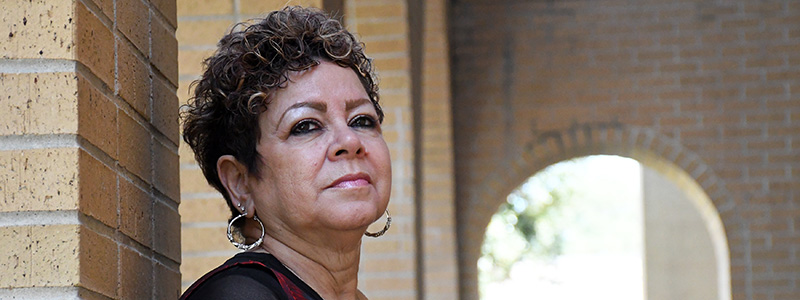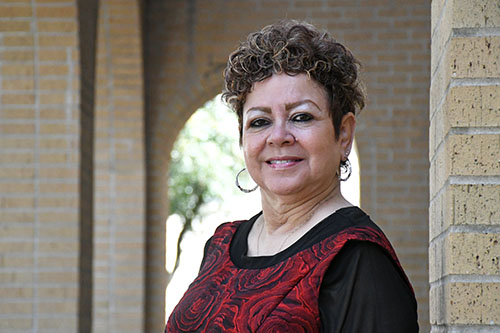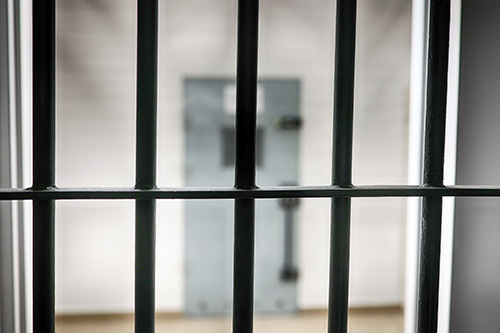Raising up ‘men of honor’ behind bars

"Men of honor, where are you?" Diane Pinkney’s voice echoes through the intermediate sanctions facility dorm.
The inmates rise: “Here I am.”
“What makes you a man of honor?” Pinkney asks.
“Because my old ways are not my ways today.”
Many of these men thought change was impossible. Today, they believe.
Voice for voiceless
In the 1980s, Pinkney didn’t expect to find her voice — or to become anyone else’s — when she enrolled at San Jacinto College.
“The public service administration program paved the way for me to get out there and express views on things that people were not able to advocate for themselves, like the homeless,” she said.
She not only mustered courage to speak up but also engaged with homeless people, trying to understand why they were in their situation. Though she saw the link to mental health problems and drug addiction, she couldn’t “quite put all the pieces together.”
Birth of mission

Wanting to learn more, she enrolled in San Jac’s mental health studies program in 2017.
“Everything my professors said to me was like hitting the nail on the head,” Pinkney said.
Meanwhile, she applied her learning outside the classroom. Driving a school bus, she taught kids why, not just how, to say no to drugs. She also rescued her cousin from a crack house, despite others telling her not to save those who “didn’t want to be saved.”
“As I began to understand the homeless, my cousin, and the information from my professors, it all made sense to me how to help people,” she said.
Behind bars
After completing her associate degree, Pinkney still needed treatment hours to become a licensed chemical dependency counselor, so she applied with the Texas Department of Criminal Justice.

Crimes range from burglary to murder, but Pinkney doesn’t judge.
“They’ve served their time,” she said. “My job is to teach them how not to repeat that behavior.”
She leads group and one-on-one sessions behind bars, challenging their thinking through inspirational movies and other resources. There’s also the “power of the pause” — staying quiet so a client can share his own story with his peers.
Men of honor
Kegans clients have four daily guarantees: breakfast, lunch, dinner, and the Kegans creed.
Pinkney asks each to recite the creed with conviction, especially the line “I believe in myself.” Though they enter as men of dishonor, they can leave as men of honor.
To demonstrate each person’s dignity, she asked a client with schizophrenia, mumbling in the corner, to come forward. He marched up front, opened his mouth, and out poured wisdom.
“Never,” she told the other clients, “discount the person sitting next to you.”
Some days you may feel like you’re not doing anything — it's not paying off. And some days you're gonna feel like you're on top the mountain. But keep moving.
Breakthroughs happen, but just as quickly, the room can change. When one client cussed her out, the others jumped to defend her.
“It made me realize anything could break loose,” she said. “Even though I don’t fear for my life, we have a lot of clients who are in dire need of psychological help.”
Her advice to others interested in the mental health field?
“Some days you may feel like you’re not doing anything — it's not paying off,” she said. “And some days you're gonna feel like you're on top the mountain. But keep moving.”
Change ahead
The moment Pinkney “hits the floors” at Kegans — 6 a.m. — her yawn switches to laser-focus.
“It’s like I just had a strong cup of coffee,” she said. “My mind is made up that ... somebody's life is going to change.”
No matter what the future holds, Pinkney knows her purpose today.
“Somebody’s waiting on a change,” she said. “And they need to hear about it.”
